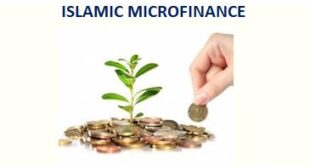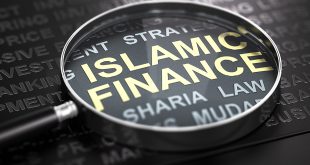Introduction
All the available indicators point out to Malaysia as a pioneer in the structuring of Sukuks. Today, however, very many English Magic Circle firms such as Baker Mckenzie LLP, Clifford Chance LLP, Denton Wilde Sapte LLP, Norton Rose LLP and others practicing in the Middle East are heavily involved in structuring Shari’ah compliant, innovative, multi-million dollar Sukuk variants for the benefit of their clients. Baker & Mckenzie LLP for instance was involved in structuring the $ 800 million debut Sukuk launched by Saudi Arabian petrochemical giant Saudi Basic Industries Corporation (SABIC) in 2006 and it’s subsequent $ 2.1 billion Sukuk.
This Islamic financial instrument is not confined to Middle Eastern countries and has expanded beyond the borders of the Islamic world. In 2004, the Provincial Government of Saxony – Anhalt in Germany issued the first Sukuk by a Western Government to raise 100 million Euros from investors in Europe and the Middle East. It is a growing investment option in the UK and across the Atlantic in the USA. The first Sukuk to be issued in the USA was reported in 2006. The emergence of Sukuks in Japan, Singapore, Germany and other European Union countries speaks volumes of the success of this equity instrument among investors.
Why is Sukuk emerging at such a rapid pace ? Perhaps one reason is that this tool provides an investment opportunity for the highly liquid investors in oil rich Middle Eastern markets to earn a return in accordance with their religious principles. From the perspective of other non – Islamic countries, Sukuk provides an opportunity to benefit from an untapped resource – Liquidity in the Islamic world. The following words of Mr.Edwin E. Hitti, President of Hong Kong’s Arab Chamber of Commerce and Industry demonstrates the enthusiasm to promote Hong Kong as a Sukuk hub and the desire to attract the high liquidity of the Middle East to Hong Kong.
“Hong Kong is late in coming to the game, but it’s just a matter of the legal system being put in place to accommodate the Islamic Product”. It is high time countries like Sri Lanka too entered the fray and competed for the attraction of foreign funds into their economies by eliminating the regulatory and tax impediments for the flourishing of Sukuk in their capital market. A Sovereign Sukuk is an alternative for Governments to raise funds as opposed to the much talked about US$ 500 million debut international bond issued for instance by the Central Bank of Sri Lanka recently.
A challenge to the policy makers ! Would they have the vision to grab this golden opportunity or opt to dwell in the land of ignorance ? The requisite tax and regulative changes would introduce certainty in the minds of investors and pave the way for the smooth development of the Sukuk market in Sri Lanka.
Different types of Sukuks
What is a Sukuk ? For readers who are not familiar with the instrument, it is a form of an asset-backed security in compliance with the Shari’ah. In short, it is an equity instrument as opposed to most of the common interest bearing debt securities available in the market and therein lies the attraction of a Sukuk to devout followers Islam. An investor in a Sukuk participates in the risk and in the reward. Thus the return to the investor is not in the form of interest, which is considered haram.
The Accounting & Auditing Organization for Islamic Financial Institutions (AAOIFI) defines a Sukuk as “Certificates of equal value representing after closing subscription, receipt of the value of the certificates and putting it to use as planned, common title to shares and rights in tangible assets, usufructs and services, or equity of a given project or equity of a special investment activity”.
Sukuk does not refer to a uniform structure and there are many variants based on different types of Islamic modes of financing used in structuring; Sukuk Al Ijara, Musharaka Sukuk, Mudaraba Sukuk, Murabaha Sukuk etc.
All these bear a common characteristic; A Special Purpose Vehicle (SPV) issues Sukuk certificates to the investors to raise funds and the coupon payments to the investors are sourced by a cash flow stemming from another Islamic financial instrument such as Ijara, Musharaka, Mudaraba or Murabaha as the case may be. Perhaps Sukuk Al Ijara is the most common variant in practice and is described below.
Sukuk Al Ijara
Sukuk Al Ijara is known for its simplicity.
The owner of a physical asset (e.g. a building) who is in need of liquidity creates a SPV and sells the building to the SPV for immediate cash and enters into an Ijara arrangement with the SPV for payment of Ijara rentals in the future. The transfer of the title of the building and the risk and rewards associated with ownership results in the asset ceasing to exist in the balance sheet of the originator or the original owner of the building
The SPV sources the funds for the purchase of the building by issuance of Sukuk Al Ijara certificates to the investors. Unlike security certificates issued in a conventional securitization, Sukuk Al Ijara certificates are not debt instruments . The investors receive pro rata ownership of the building acquired by the SPV and shares in the rental income also on the same basis.
The investors share in the profit or losses derived from the success or failure of the underlying asset. It’s an undivided beneficial ownership of real property that is reflected by a Sukuk certificate. On the occurrence of a dissolution event or at maturity the physical asset is sold to the original owner by the SPV. Ijara Sukuk certificates could be traded in a secondary market as these are negotiable at par, premium or discounts without violating any applicable Shari’ah rules.
The USD 1 billion Sukuk issued by the Dubai Civil Aviation (DCA) is an example based on the Ijara – based model. Assets including land and building belonging to the Dubai International Airport were transferred for consideration to an SPV incorporated in the Dubai Airport Free Zone and in turn the SPV leased the assets through an Ijara to the DCA and the Government of Dubai. A separate service agreement was executed in order for the DCA to act as the agent to maintain and insure the assets.
Readers familiar with the three types of conventional securitizations i.e. Pass through, Pay through and Asset backed (AB), would appreciate that Sukuk Al Ijara somewhat resembles the pass through structure. In both scenarios the asset ceases to exist in the balance sheet of the originator as the risk and rewards associated with ownership transfers to the SPV. However in Sukuk Al Ijara, it is a physical asset that becomes the subject matter of the transfer as opposed to a debt or a financial claim.
To say the least this prima facie simplicity perhaps is misleading. Sukuk Al Ijara structure could span across multiple jurisdictions. Structuring of this Sukuk variant across multiple jurisdictions by locating the SPV in a country different to that of the originator and issuance of Sukuks certificates to investors in a third country or investors from various countries would warrant the analysis of tax, accounting and regulatory status in each country. A daunting and fascinating task for the consultants involved indeed !
The true sale of assets to a SPV may experience obstacles in jurisdictions where regulations impose limitations on foreign ownership of assets and / or levy high ownership transfer taxes. E.g. the 100% transfer tax applicable on transfer of immovable property to non citizens in Sri Lanka.
Tax issues
Sukuks are exposed to major direct and indirect tax hurdles in many jurisdictions. Realizing the importance of developing Sukuk markets in their respective jurisdictions, many countries have enacted tax legislations to facilitate and provide reliefs for Sukuk structures. One such notable jurisdiction is the UK, where legal form prevails and is considered sacred in the determination of tax ramifications as opposed to the substance of the transaction.
The range of tax exposures of Sukuks includes the classification of the nature of payments to Sukuk holders as dividends, interest or principal and the applicability of withholding taxes on these payments. There may be issues even as to the nature of the transactions, i.e. whether it is an equity investment, loan or a sale of asset depending on the associated legal documents.
A comparison of the tax efficiency of raising funds via Sukuks as opposed to conventional debt instruments reveal that in the absence of Sukuk – specific tax legislation, the latter may be at a disadvantage as interest paid on debt instruments are eligible for tax relief. In many jurisdictions cash flows received by the SPV by way of Ijara rentals or a cash flow bearing any other character such as distributions out of Mudaraba would be exposed to income tax. On the other hand payments made by it to the Sukuk holders would not qualify for tax deductions as they are not in the nature of interests. In case of a Sukuk Al Ijara the payment to the investors represent their fractional entitlement to the rent and in Mudaraba Sukuk the payment is the investors’ fractional entitlement of the income from Mudaraba.
Where the structure spans across the territorial borders of different jurisdictions, analysis of Treaties for relief from Double Taxation would inevitably be a part of the process. Are cross border payments to investors to be governed by the Article applicable to dividends, interest or business profits while the cross border cash flows may be exposed to withholding tax laws. In addition, these payments would also have to comply with the respective Exchange Control Regulations.
Do investors create a permanent establishment in the other jurisdiction by virtue of pro rata holding of beneficial ownership in underlying assets transferred by the originator to the SPV ? The Sukuk – holders in another territory receive their fractional entitlement of revenue from these assets by virtue of the certificate ! Another complicated issue that warrants the attention of a tax consultant.
As mentioned previously a Sukuk certificate provides the holder a proportionate beneficial ownership of assets. This may expose a Sukuk holder trading in Sukuk certificates into many uncertainties. A person trading in Sukuk is essentially engaged in buying & selling fractional ownership in interest in assets. Would the Sukuk trader be liable for the whole gamut of taxes associated with transfer of property viz, income tax, VAT, stamp duty, transfer tax etc ?
Tax reforms
The Malaysian legislature perhaps has taken the lead in the introduction of Sukuk specific legislation among Asian countries. Policy makers in UK who manifested their “Islamic finance friendly” approach by the introduction of tax reforms through Finance Acts 2005 & 2006 continue to demonstrate their commitment for the elimination of tax bars for this alternate mode of financing. Tax reforms such as Alternate Finance Investment Bond (AFIB) in UK introduced by Finance Act of 2007 and the expansion of Qualifying Debt Securities (QDS) Scheme in Singapore to cover “Islamic Debt Securities” create a conducive environment for the development of Sukuk hubs.
UK
The Finance Act of 2007 in UK has paved the way for tax relief for payments to the investors by treating it as tax deductible interest. Structures resembling Sukuks (subject to certain rules) are termed as Alternate Financial Investment Bonds (AFIB) and from the perspective of the issuer, is considered to establish a loan relationship for tax purposes.
The recent UK legislation has also successfully resolved the uncertainties that prevailed in trading of Sukuks by deeming Sukuks as “securities” for tax purposes and elimination of VAT and stamp duty on transfer of certificates.
Malaysia
Malaysia, a Sukuk hub in Asia seems to have addressed most of the tax hurdles within the tax framework. Stamp duty has been exempted for Sukuk issuance through Malaysia. It also provides an exemption for profits received by resident investors from foreign currency denominated Sukuk issued in Malaysia. Malaysian law also provides for profits derived by a non resident from foreign currency denominated Sukuks issued in Malaysia to be free from withholding tax.
Sri Lanka
How would Sukuks sit on the fascinating web of taxes in Sri Lanka ? The Author does not intend to engage in an analysis of the tax ramifications in totality but to point out only the obvious. Similar to many other jurisdictions, the statute book in Sri Lanka does not contain much securitization specific legislation, though a draft of a legislation is in place.
Whilst promoting securitization specific legislation, it is paramount that the process ensures that a Special Purpose Vehicle is not subjected to income tax. Unlike in a securitization, payments made by the SPV to the investors do not qualify for tax relief as they are not in the nature of interest and the levying of income tax on SPV could result in eroding the economies of a Sukuk structure. The possible exposure of the cash flows received by the SPV from Islamic financing technique used (Ijara rentals etc;) to Economic Service Charge, (Sri Lanka’s equivalent of Alternate Minimum Tax in other jurisdictions) is intrinsically linked to the right of the SPV to claim capital allowances on the assets transferred to it. The proposition that SPV is engaged in a business is mandatory for the application of the charge as well as the right to claim the tax relief.
The transfer of the title in the above example from the originator to the SPV initially and back to the originator at the end of the term would expose the transaction for dual stamp duty liability in jurisdictions where stamp duty is levied on transfer of immovable property such as Sri Lanka. Thus one critical tax reform that should be introduced to facilitate Sukuk in Sri Lanka is an exception of stamp duty via an amendment to Provincial Council Finance Statutes that levy stamp duty on transfers of immovable property to and from the Originator and SPV. Applicability of VAT on these transfers would also warrant attention, especially in the context where the Sri Lankan VAT statute contains many restrictions on claiming of input tax including a ceiling on allowable input tax to 85% of output tax. A 100% Transfer tax on acquisition of ownership of immovable property by foreigners could also pose a burden on Sukuk mechanisms where immovable property is involved.
Conclusion
An instrument used to impart liquidity, Sukuks, sometimes referred to as ‘Islamic Bonds’, are used for long term and mid term funding requirements of financial institutions, blue chip corporates and Governments. Whilst capital markets across the globe have accepted this Shari’ah compliant instrument as a viable alternative to bonds and syndicated loans, issuers must take cognizance of likely tax consequences in the applicable jurisdictions.
Sukuks enjoy, perhaps, level playing fields with their conventional counterpart bonds in jurisdictions such as Malaysia, Singapore, United Kingdom and other countries due to the positive responses by the policy makers by way of the requisite reforms to their respective tax systems. The eagerness of these countries to develop Islamic financing and establish ‘Sukuk hubs’ in their respective jurisdictions to attract liquid petrodollars in the Islamic world perhaps is an indicator for the policy makers in jurisdictions where Sukuks & other Islamic instruments are still in an embryonic stage to get their act together.
© Islamic Finance Today – Pioneer Publications (Pvt) Ltd
Post Disclaimer | Support Us
Support Us
The sailanmuslim.com web site entirely supported by individual donors and well wishers. If you regularly visit this site and wish to show your appreciation, or if you wish to see further development of sailanmuslim.com, please donate us
IMPORTANT : All content hosted on sailanmuslim.com is solely for non-commercial purposes and with the permission of original copyright holders. Any other use of the hosted content, such as for financial gain, requires express approval from the copyright owners.
 Sri lanka Muslims Web Portal Sri Lanka Muslims News Center
Sri lanka Muslims Web Portal Sri Lanka Muslims News Center
 Donate
Donate

